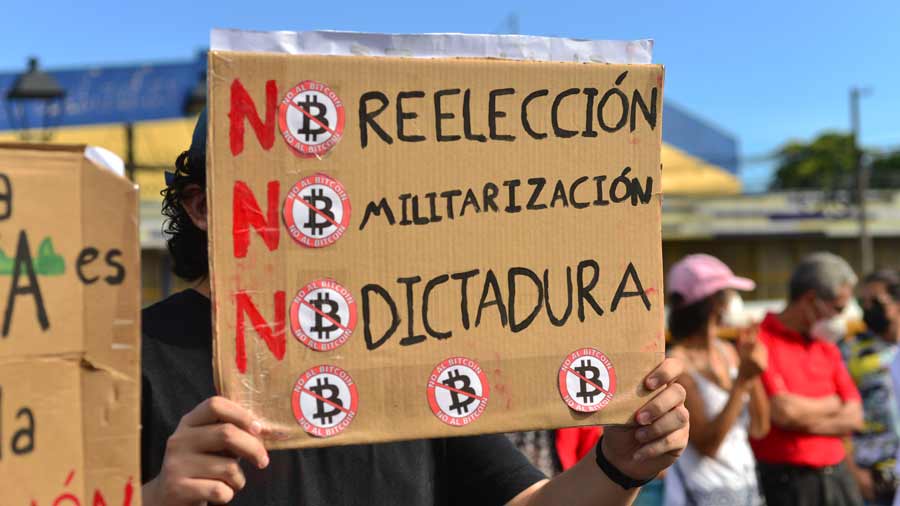
According to this market analysis, investors’ attention is focused on the latest Supreme Court decision that determined on Friday what could allow the re-election of Nayib Bukele.
The price of Salvadoran bonds fell again on the first day of the Bitcoin Act and as rejection marches intensify against President Nayib Bukele for his decisions against the judiciary.
According to a Bloomberg note, dollar bonds maturing in 2029 were heading for their biggest loss in four months on Tuesday, “as debt investors looked beyond the failed launch of Bitcoin as a legal tender, and instead focused on an emerging political risk. “
According to this market analysis, the attention of investors is set on the latest decision of the Supreme Court of Justice which determined on Friday that an incumbent president could run for a second term, which could allow for re-election by Nayib Bukele.
Government today lost $ 1.9 million from Salvadoran taxpayers for the purchase of 400 bitcoins
According to Bloomberg, between the digital currency experiment and the uncertainty of another presidential term for Bukele, money managers are weighing the risk of a delayed deal with the International Monetary Fund (IMF) especially after President Bukele thanked the agency on Twitter for the depreciation of Bitcoin.
“It’s a purely political risk, which grew after the news of the re-election and had not been discounted,” said RamTiro Blazquez, strategist at BancTrust & Co, referring to the fall in bond prices. “It further distances the IMF agreement and could intensify the diplomatic conflict with the United States,” he added.
This Tuesday bonds maturing in 2029 fell nearly 5 cents to 87.6 cents per US dollar, the biggest drop since early May, when Bukele’s party took control of the upper court and replaced the Attorney General. This move to consolidate power has also affected investors who see a deal with the IMF as necessary. El Salvador is seeking a loan of up to $ 1.4 billion from the IMF, the largest voting member being the United States.
“The bottom line is that the dominant political agenda undermines U.S. diplomatic relations as well as the prospects of an IMF program,” said Siobhan Morden, director of fixed-income strategy for Latin America. Amherst Pierpont Securities. While short-term default risks are low, “market risks could still be high until we better understand the risk premium of the Bukele policy, especially on how they plan to finance next year,” he stressed. Bloomberg agency.